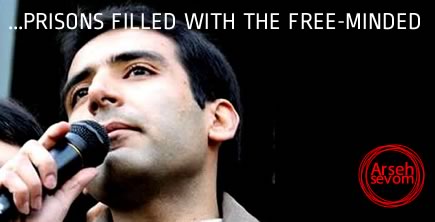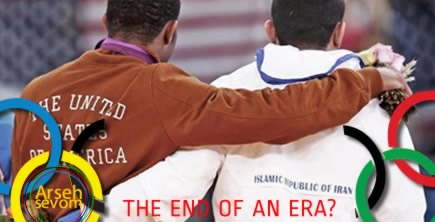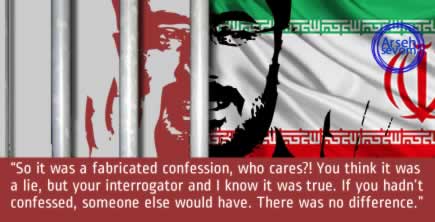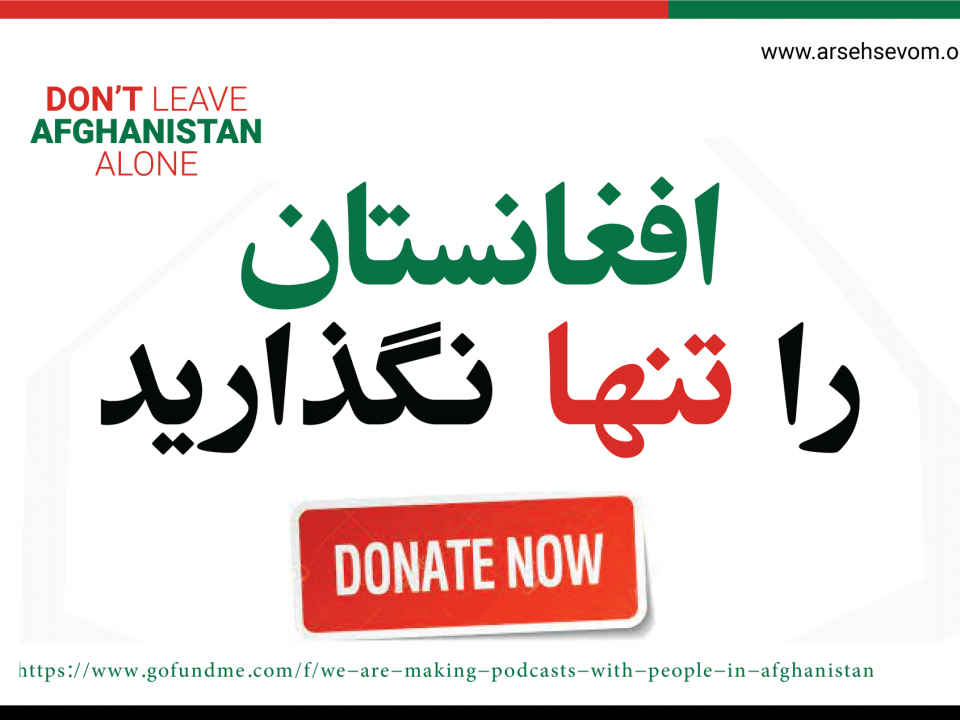
Iran: Majid Tavakoli Honored as Most Forms of Criticism are Criminalized
February 14, 2013
Iran: Wrestling with the BBC, the South Pole, and the IOC
February 21, 2013In a bit of political drama, Saeed Mortazavi was arrested on February 7 and held for 24 hours. This came after Mahmoud Ahmadinejad played a tape recording of Ali Larijani’s (Speaker of Parliament) lesser known brother trying to use the status of his well-known family for financial gain. (You can read all about the encounter on EA World News.)
Mortazavi, aka “The Butcher of the Press,” is notorious for his ruthless campaign against journalists and the press. He is at the center of the 2003 arrest and subsequent death of Canadian-Iranian journalist Zahra Kazemi. The former Tehran prosecutor is no stranger to prison, having spent time — however briefly — on both sides of the bars. Yet, despite the sheer number of complaints against him, including the deaths of a number of prisoners in Kahrizak prison shortly after the flawed 2009 presidential elections, Mortazavi continues to act with impunity. Having received little more than a slap on the wrist after the deaths in Kahrizak, he was forced out of his job as Tehran’s chief prosecutor. He now heads the social security administration.
In a post on the International Campaign for Human Rights in Iran, lawyer and human rights activist Abdol-Karim Lahidji discusses Mortazavi’s involvement in the death of Kazemi, his support from the Supreme Leader, and his habit of recording people without their knowledge. Lahidji states:
“Everyone knows that one of the reasons for his impunity has been Khamenei’s constant support. In his worst days, when we saw Mortazavi showing up to Khamenei’s sermons, it meant that he had a rock behind him and nobody could touch him. Later, when he was suspended from his judicial position, against the opinion of the Administrative Justice Court, he was given multiple positions inside the Ahmadinejad cabinet. But with what has happened now, it is possible that the Supreme Leader may have decided that this time Mortazavi and Ahmadinejad have gone too far and he may have authorized his punishment.”
The arrest of Mortazavi led to journalist and activist Peyman Aref’s reflection on his own 2003 encounters with Saeed Mortazavi, who was then Tehran’s prosecutor. He wrote the account and published it publicly on Facebook.
Aref was arrested a number of times, beginning in 2003 when he was a student at Tehran University. He was tortured, brutally lashed, forced to make false confessions, and tried to commit suicide while in prison. In the letter Aref describes the loss of his innocence, his overwhelming fear, and his shame at giving a forced confession. Aref quotes Mortazavi:
“So it was a fabricated confession, who cares?! You think it was a lie, but your interrogator and I know that it was true. If you had not confessed, someone else would have done so. There was no difference.”
Arseh Sevom has translated Aref’s complete letter. You can read it in full here.
Letter from Peyman Aref to Saeed Mortzavi
Mr. Mortazavi! Mr. Saeed Mortazavi!
Hi!
Do you remember the year 2003?
It was not long after you had been promoted as prosecutor, when the cells in 2-A and ward 209 were like the backyard of your house.
Do you remember when you entered into my interrogation cell and told me with your Yazdi accent: “If you don’t cooperate with your interrogator, I will punish you”? I remember I did not understand your point, so you told me: “Do you know what a cable is?” You had a satanic smile on your face. I was just twenty or so. You told me to say hello to Azrael and left the cell. Do you remember that Safaei Farahani and possibly Aboutorabi [Ed. note: Reformist and Conservative politicians] were so determined to meet me, Mehdi Shirzad, and Abdullah Momeni?
That afternoon, you ordered the jailors to take us from ward 2-A to the third yard in order not to be seen by observers.
It was Mohsen Armin or possibly Abdullah Ramezanzadeh who asked Safaei Farahani to stay until 23:00 to see us. After, the jailors took me to meet you in the yard of 2-A around midnight.
I was tired and broken after two months of solitary confinement. You talked to me for half an hour and deceived my innocent soul: “Do not say a word in front of Safaei Farahani, not about the beatings, torture, or your unsuccessful suicide attempt.”
Do you remember that I was such a sensitive and fragile young man? I cried in front of you and asked you not to send Azrael to me. I told you I will do anything you want, but I will not leave you alone in the afterlife. You laughed and told me, “Who said such a thing as the afterlife exists?!”
Do you remember how I told you: “The God I see in solitary confinement these days will not leave your case for the afterlife?!”
Do you remember how you ordered the jailors to vacate the general ward of Evin Prison and take me, Saeed Ghasseminejad, and Mojtaba Najafi there for half an hour? You wanted to show us to Safaei Farahani and Aboutorabi and claim that we were imprisoned there, not in solitary confinement. Do you remember how I told you God will not leave your case for afterlife? Now enjoy prison!
P.S. 1. Finally, I was cracked by Azrael around dawn. I confessed and made myself ashamed to face Fatemeh Haghighatjoo forever. Do you remember how happy you were when you came to me in the morning and taught me how to confess?! Do you know how many tranquilizers I took after being free from 2-A? I tried to commit suicide as a result of unbearable burden of the fabricated confession. Do you remember? You came to visit me on the tenth floor of Baghiatullah Hospital. There you told me:
“So it was a fabricated confession, who cares?! You think it was a lie, but your interrogator and I know that it was true. If you had not confessed, someone else would have done so. There was no difference.”
I said, “God damn you!” and your assistant Arjmandi attacked me and slapped me in the face. Do you remember?
P.S. 2. In this text, Azrael is not the Archangel of Death. Instead, it was the term we used for the most savage interrogator of section 2-A, who claimed to have interrogated Abbas Abdi, Behrouz Geranpayeh, Hossein Ghazian, and Ezzatullah Sahabi. His expertise was in breaking enemies of the Supreme Leader and Islamic Revolution!
P.S. 3. At the time when Mortazavi and his team were successful in fabricating confessions, Khodayari wrote an excellent article in the Norooz newspaper. I should show my gratitude for that piece even though it’s been nearly a decade. Masoud Behnoud wrote another great article for which I am also thankful. Furthermore, after I was freed from prison, Mostafa Malekiyan wrote an article for me that I should really thank him for.





